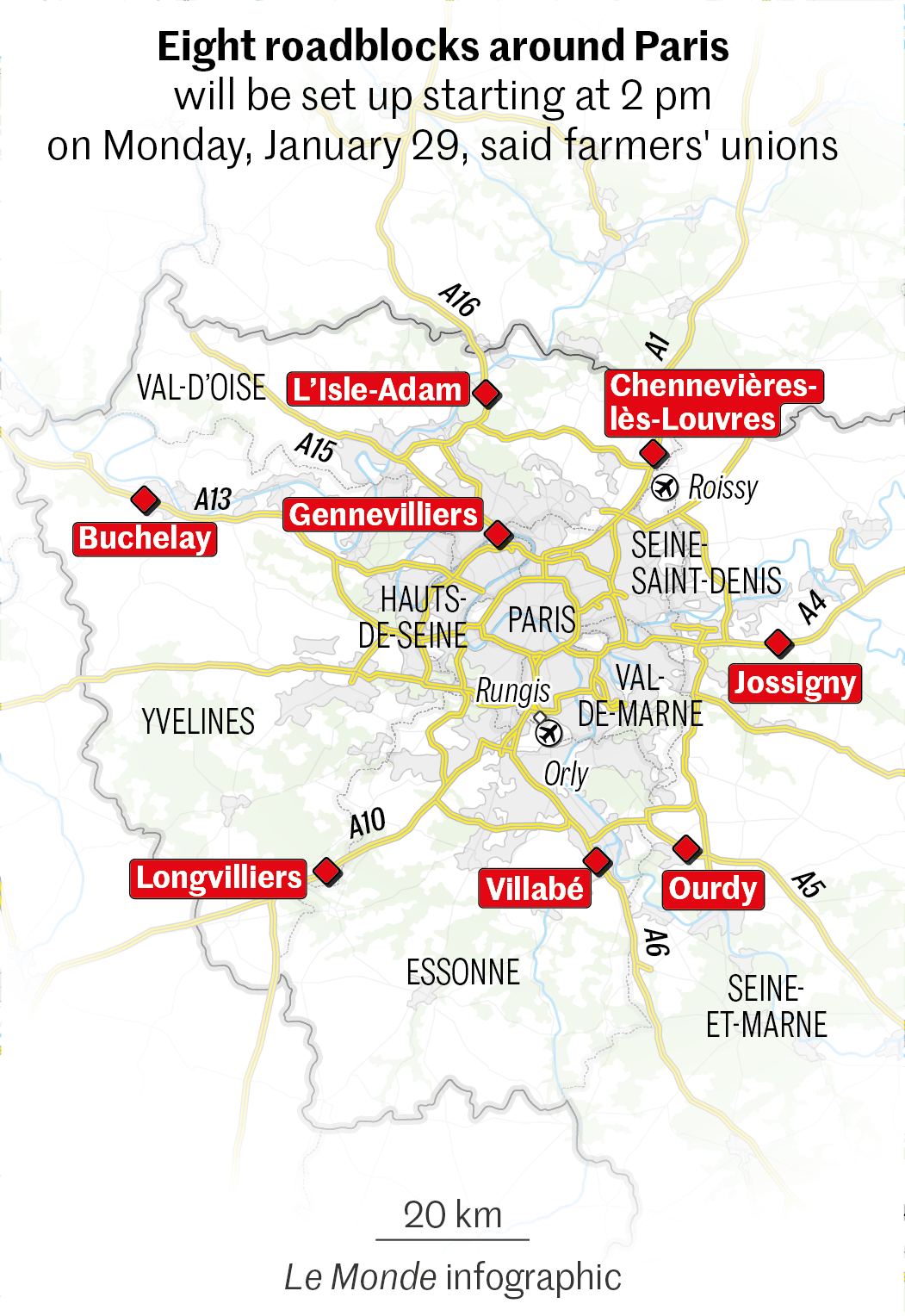

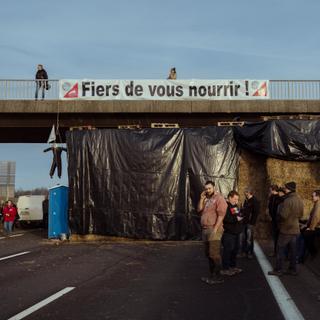
On the roadblocks around Paris, farmers try to 'combine demands with friendliness'
FeatureA thousand angry farmers and just over 500 machines blocked the main roads around the French capital on Monday, without bringing the city to a standstill. Their aim is to keep up the pressure until the European summit scheduled to take place in Brussels on February 1.
The wall of hay bales was erected in just a few minutes on the A4 highway, near Jossigny, east of Paris. By 2 pm on Monday, January 29, some 30 tractors had taken up position some 30 kilometers from the capital. Under the gaze of onlookers, a white tarp was unfurled, with tables and benches laid out inside and litter garbage cans set up nearby, as well as dry toilets and a huge water tank for washing hands.
"'It's organized by farmers, so we make do," said Samuel Vandaele, 37, a farmer in an official with the local branch of the FNSEA farmers' union. "We're trying to combine our demands with friendliness, the DNA of the farmer."
The FNSEA and the Young Farmers announced a "siege" on Paris on Monday, with eight blockade points a few dozen kilometers from the capital. While the city and its airports (operating normally) are still far from at a standstill, traffic has been rendered very heavy, if not at a standstill, on several major Paris motorways, including the A1, A4, A5, A6 and A13, according to the Sytadin website. According to a police source contacted by Agence France-Presse, there were around a thousand farmers and just over 500 vehicles around Paris (compared with just under 10,000 farmers protesting throughout France).
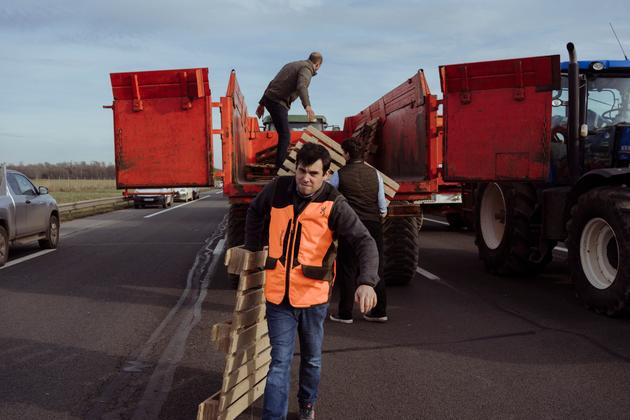
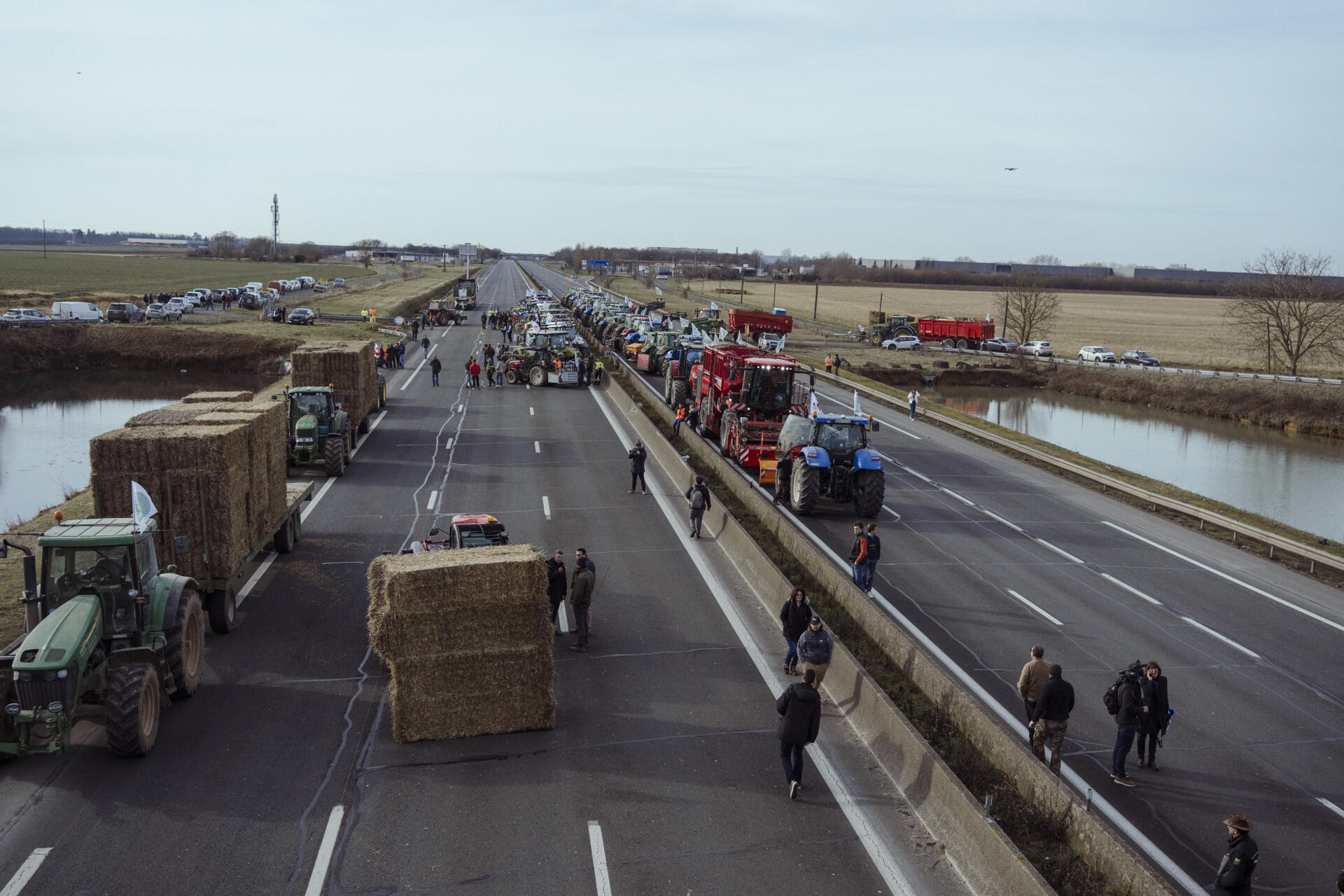
Pressure is still on
After a week of demonstrations and initial announcements by Prime Minister Gabriel Attal on January 26, promising a simplification plan and the lifting of the tax increase on non-road diesel fuel, the pressure is still on. Government spokeswoman Prisca Thevenot announced "new measures" as early as Tuesday, and Attal received representatives of the farming unions at his office on Monday evening.
"There's been an accumulation of things that have put pressure on the agricultural pressure cooker in recent months, if not years: laws, rules, constraints, international and European policies," listed Adrien Dupuy, a 46-year-old mixed-crop farmer and FNSEA member. He was one of the organizers of the 240-strong convoy that set off from Beauvais, some 75 kilometers north of Paris, at midday and reached Chambly before turning back in the evening.
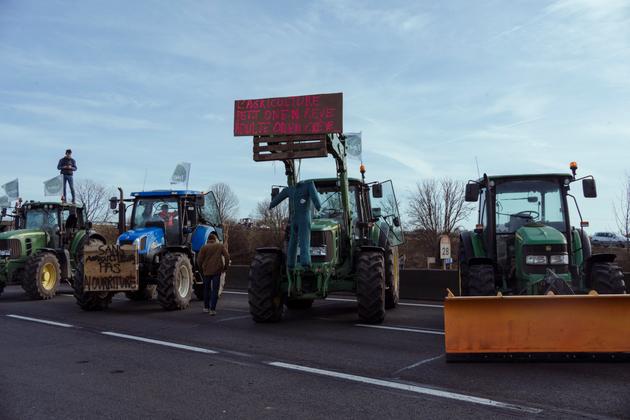
Among the points still upsetting the industry, the farmer cited the obligation to set aside 4% of arable land and the sale in France of products that French farmers are not allowed to use, such as "Spanish cherries treated with certain pesticides, GMO soybeans resistant to glyphosate" or "Brazilian chicken treated with antibiotics." He concluded: "We don't want to bring into France what we're not allowed to produce in France."
You have 55% of this article left to read. The rest is for subscribers only.

